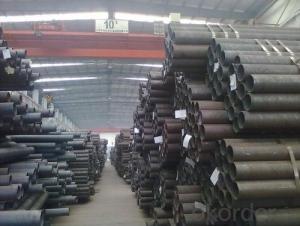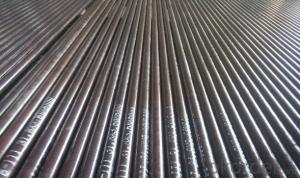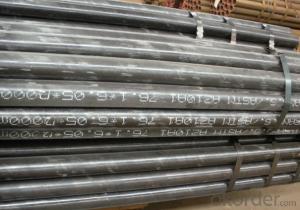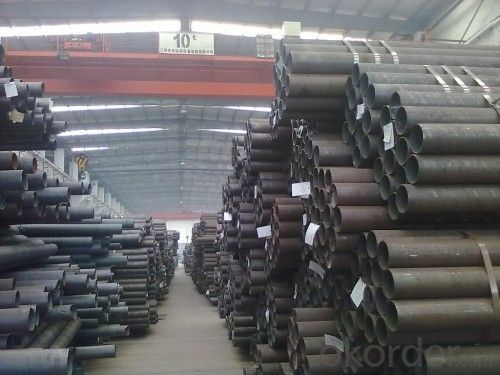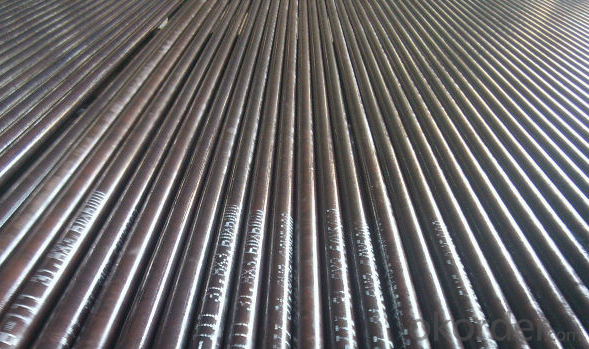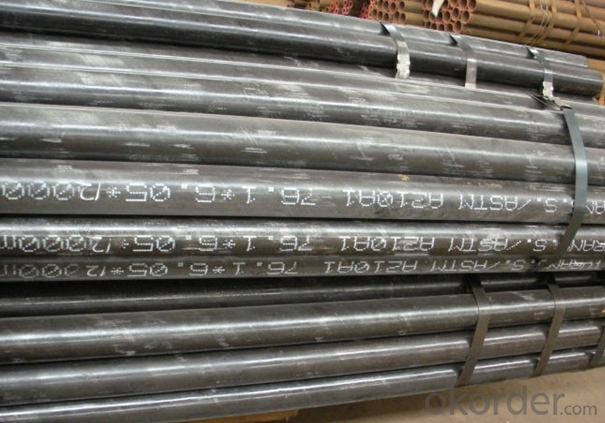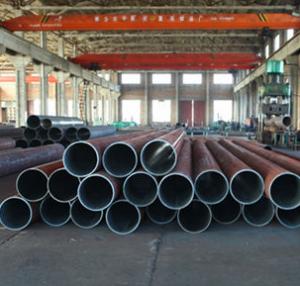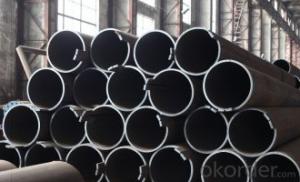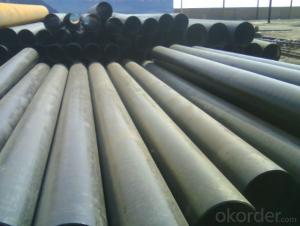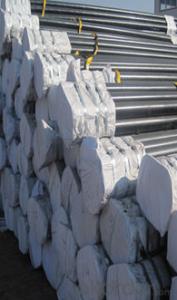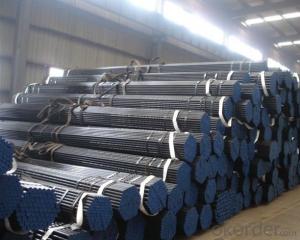Carbon Steel Seamless Pipe For Boiler A53-A369 CNBM
- Loading Port:
- Qingdao
- Payment Terms:
- TT OR LC
- Min Order Qty:
- 10 pc
- Supply Capability:
- 30 pc/month
OKorder Service Pledge
OKorder Financial Service
You Might Also Like
Quick Details
| Thickness: | 1.2 - 20 mm | Section Shape: | Round | Outer Diameter: | 12.7 - 168 mm |
| Place of Origin: | Jiangsu China (Mainland) | Secondary Or Not: | Non-secondary | Application: | Boiler Pipe |
| Technique: | Cold Drawn | Certification: | PED | Surface Treatment: | oil coating |
| Special Pipe: | Thick Wall Pipe | Alloy Or Not: | Is Alloy | ASTM A213: | T2,T5,T9,T11,T12,T22,T23,T91,T91 |
| ASTM A335: | P1,P2,P5,P9,P11,P12,P22,P23,P91,P92 | DIN17175: | 15Mo3,10CrMo910,12CrMo195,13CrMo44 | Grade: | 12Cr1MoV,Cr5Mo,Cr9Mo,12Cr1MoVG,Cr5MoG,A335 P11,A335 P5,A335 P9,A335 P1,A213,A192,A210,A335 P12,A335 P23,St35.8,Cr-Mo alloy,A53-A369,ST35-ST52 |
| Standard: | BS 3059-2,DIN EN 10216-1-2004,DIN 17175,ASTM A213-2001,ANSI A210-1996,ASTM A179-1990,BS,DIN,ASTM |
Packaging & Delivery
| Packaging Detail: | Seaworthy export packing |
| Delivery Detail: | 45 Days |
Specifications
Standard: ASTM A179,ASTM A192,ASTM A210,DIN17175,EN10216-1
Material:P235GH,ST35.8,ST45.8
Manufacture method:cold drawn
Product Description
Commodity: Carbon steel seamless pipe for boiler
Standard&material: ASTM A179,ASTM A192,ASTM A210 Gr.A1,Gr.C,DIN17175 ST35.8,ST45.8,EN10216-1 P235GH,P265GH,etc.
Size range: 12mm*1.2mm - 168mm*20mm
Manufacture method: cold rolled, cold drawn
Delivery condition: Normalized, Normalized and Tempered.
Mill test certificate as per EN10204 3.1B is available.
Third party inspection is acceptable.
Tubes will be ECT+UT.
- Q: Can steel pipes be used for oil and gas well production?
- Yes, steel pipes are commonly used for oil and gas well production due to their high strength, durability, and resistance to corrosion.
- Q: What is the difference between black and galvanized steel pipes?
- The main difference between black and galvanized steel pipes lies in their coating. Black steel pipes are untreated and have a dark, uncoated appearance, while galvanized steel pipes are coated with a layer of zinc to prevent corrosion. This zinc coating on galvanized pipes helps protect against rust and extends their lifespan, making them suitable for outdoor and exposed applications. Black steel pipes, on the other hand, are typically used for indoor applications and are often painted or coated after installation to prevent rusting.
- Q: How are steel pipes used in wastewater treatment plants?
- Steel pipes are extensively used in wastewater treatment plants for various purposes such as transporting wastewater, carrying chemicals, and supporting infrastructure. These pipes are durable, corrosion-resistant, and can withstand high pressure, making them ideal for conveying wastewater and other fluids within the plant. Additionally, steel pipes are often used in the construction of wastewater treatment plant structures and support systems due to their strength and longevity.
- Q: Can steel pipes be used for underground sprinkler systems?
- Yes, steel pipes can be used for underground sprinkler systems. However, it is important to note that steel pipes are not as commonly used as other materials like PVC or polyethylene due to their susceptibility to corrosion. If steel pipes are chosen for this application, they should be coated or lined to protect them from underground moisture and ensure their longevity.
- Q: How are steel pipes protected against ultraviolet (UV) radiation?
- Steel pipes can be protected against ultraviolet (UV) radiation through the application of coatings or paints that act as a barrier between the pipe surface and the UV rays. These coatings are specifically designed to resist the damaging effects of UV radiation, such as fading, chalking, or degradation of the steel material. One common method of protection is the use of UV-resistant paints or polymeric coatings that contain special additives or pigments that reflect or absorb UV rays. These coatings not only shield the steel from UV radiation but also provide an additional layer of corrosion protection, extending the lifespan of the pipes. Another method used for UV protection is the application of thermal insulation materials. These insulating materials, such as foam or coatings with reflective properties, are capable of reducing the impact of UV radiation on the steel pipes. They act as a shield, preventing direct exposure to the UV rays and minimizing the potential damage caused by prolonged exposure. It is important to note that the choice of UV protection method depends on various factors, including the specific application, environmental conditions, and the required durability of the steel pipes. Consulting with experts in the field can help determine the most suitable UV protection solution for a particular project or application.
- Q: Can steel pipes be used for conveying slurry and slurries?
- Steel pipes are versatile and can be used to transport slurry and slurries. They are frequently employed in a range of applications, including the conveyance of fluids, gases, and solids. These pipes are renowned for their durability, strength, and resistance to corrosion, which makes them well-suited for handling abrasive materials like slurry and slurries. To enhance their protective capabilities against wear and tear caused by the abrasive nature of slurries, steel pipes are commonly lined with materials such as rubber or ceramic. The choice of steel grade and lining material depends on the specific requirements of the slurry being transported, including factors like particle size, concentration, and temperature. In summary, steel pipes are a dependable and efficient choice for the transportation of slurries across various industries, including mining, wastewater treatment, and chemical processing.
- Q: Can steel pipes be used for wastewater treatment plants?
- Yes, steel pipes can be used for wastewater treatment plants. Steel pipes are commonly used in wastewater treatment plants due to their durability, strength, and resistance to corrosion. They are suitable for conveying and transporting various types of wastewater and can withstand the harsh and corrosive environment found in these facilities. Additionally, steel pipes can be easily welded and joined, allowing for efficient installation and maintenance processes.
- Q: What are the advantages of using steel pipes in construction?
- There are several advantages of using steel pipes in construction. Firstly, steel pipes are highly durable and have a long lifespan, making them ideal for long-term projects. Secondly, steel pipes have a high strength-to-weight ratio, meaning they can support heavy loads without being bulky or cumbersome. Additionally, steel pipes are resistant to corrosion, which ensures their longevity and reduces maintenance costs. Moreover, steel pipes are adaptable and can be easily fabricated and customized to fit specific project requirements. Lastly, steel pipes are eco-friendly as they can be recycled, reducing waste and promoting sustainability in construction.
- Q: DN150 welded steel tubes one meter multiple
- The theoretical weight table of welded steel pipe (Kg) can be checked, and the outer diameter and wall thickness can be measured according to the formula.For example: DN150 welded steel pipe, diameter 165mm, thickness 4.5mm, weight kg per meter.Welded steel pipe theoretical weight (Kg/m) = (165-4.5) * 4.5 * 0.02466=17.81Kg
- Q: What are the different types of steel pipes?
- There are several different types of steel pipes, including carbon steel pipes, stainless steel pipes, alloy steel pipes, and galvanized steel pipes. Carbon steel pipes are the most common type and are used for a wide range of applications. Stainless steel pipes are corrosion-resistant and often used in industries where hygiene is important. Alloy steel pipes are made from a combination of different metals to enhance their strength and durability. Galvanized steel pipes are coated with a layer of zinc to prevent corrosion and are commonly used in outdoor and marine applications.
Send your message to us
Carbon Steel Seamless Pipe For Boiler A53-A369 CNBM
- Loading Port:
- Qingdao
- Payment Terms:
- TT OR LC
- Min Order Qty:
- 10 pc
- Supply Capability:
- 30 pc/month
OKorder Service Pledge
OKorder Financial Service
Similar products
Hot products
Hot Searches
Related keywords
